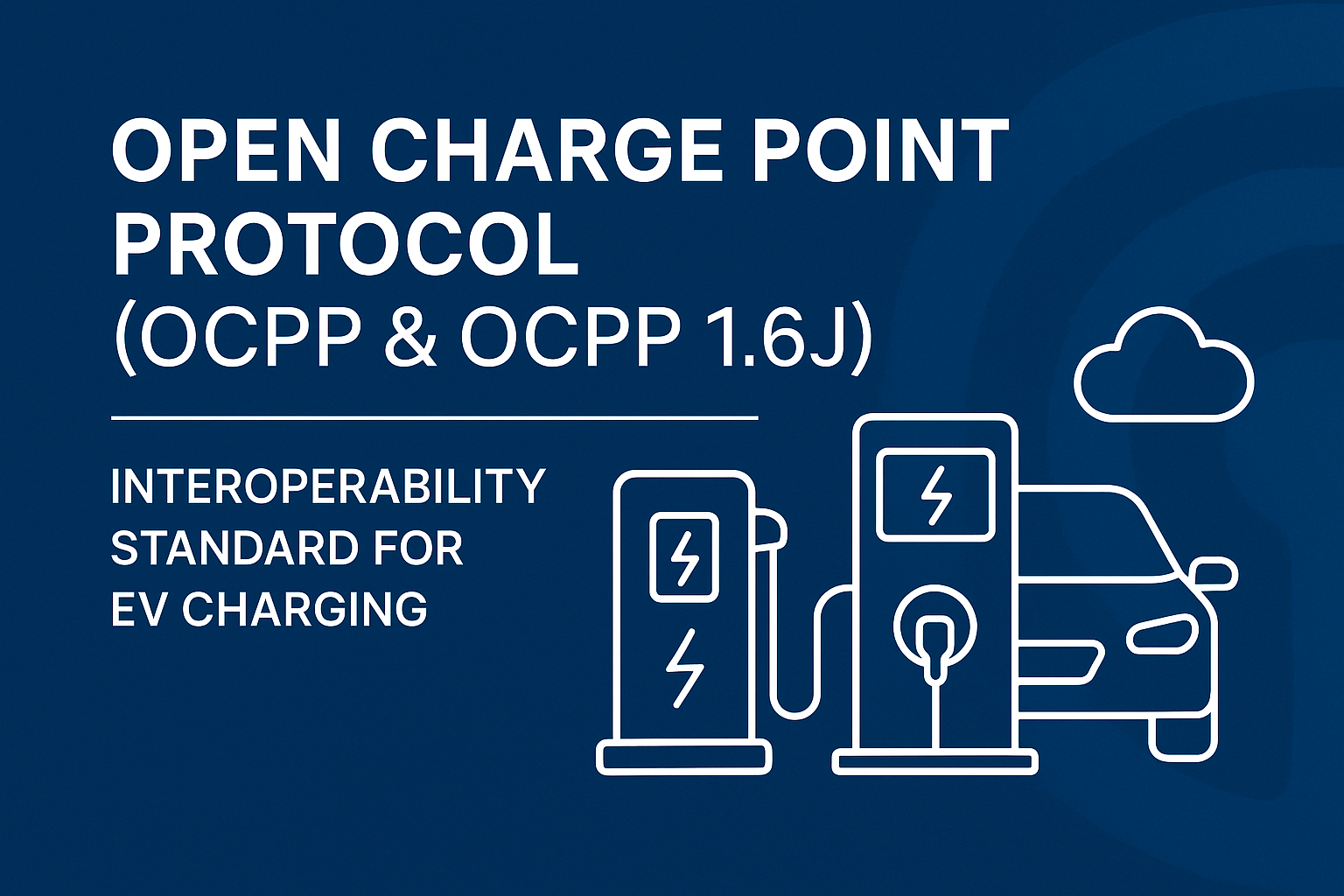Open Charge Point Protocol (OCPP & OCPP 1.6J)

What is OCPP?
Open Charge Point Protocol (OCPP) is an open-source communication standard developed to enable interoperability between EV charging stations (Charge Points) and charging network management systems (Central Systems). It allows equipment from different manufacturers to work together within the same network.
Originally developed by the Open Charge Alliance (OCA) in 2009, OCPP has become the de facto standard for EV charging communication globally.
Versions of OCPP
- OCPP 1.5: Widely adopted legacy version with basic messaging functions
- OCPP 1.6J: The most widely implemented version today. It uses JSON over WebSockets, offering asynchronous communication, real-time session management, remote control, diagnostics, smart charging profiles, and central authorization. It is robust and scalable enough for large commercial networks.
- OCPP 2.0 / 2.0.1: Latest versions with full support for ISO 15118, enhanced security, smart energy management, V2G capabilities, and better support for AC/DC chargers.
Why OCPP Matters
- Interoperability: Connects chargers from different brands with any back-end system
- Scalability: Supports both small and large charging networks
- Vendor Neutrality: Encourages market competition and avoids vendor lock-in
- Innovation-Ready: Allows seamless updates and feature rollouts
How OCPP Works
OCPP operates through a client-server model:
- Charge Point (Client): The EVSE or charger
- Central System (Server): Cloud-based management platform
Communication typically uses JSON over WebSockets or SOAP/XML depending on the version. It allows:
- Start/stop charging sessions
- Firmware updates
- Charge point diagnostics
- Load balancing commands
- Authorization handling
Features of OCPP
- Remote Management: Start/stop sessions, update firmware, monitor usage
- Smart Charging Support: Dynamic load balancing and energy optimization
- Plug & Charge (via ISO 15118): Seamless driver experience
- Security (OCPP 2.0.1): Secure firmware updates, encrypted messages
Use Cases
- Public EV Charging Networks
- Fleet Charging Depots
- Smart Cities & Urban EV Hubs
- EV Infrastructure Management Platforms
OCPP in Action
- Exicom’s Harmony Connect RMS: OCPP-compliant for seamless integration with third-party platforms
- CPO Networks (Charge Point Operators): Use OCPP to manage distributed chargers
- OEMs & Integrators: Ensure device compatibility and remote operability
Benefits
- Universal Compatibility: Works across brands and geographies
- Future-Proof Infrastructure: Easily upgradeable as standards evolve
- Improved Uptime: Enables predictive maintenance and diagnostics
- Grid Flexibility: Supports integration with smart grid and renewable sources
🔄 Callout: OCPP 1.6J is the most widely implemented version today. It uses JSON over WebSockets, offering asynchronous communication, real-time session management, remote control, diagnostics, smart charging profiles, and central authorization. It is robust and scalable enough for large commercial networks.




